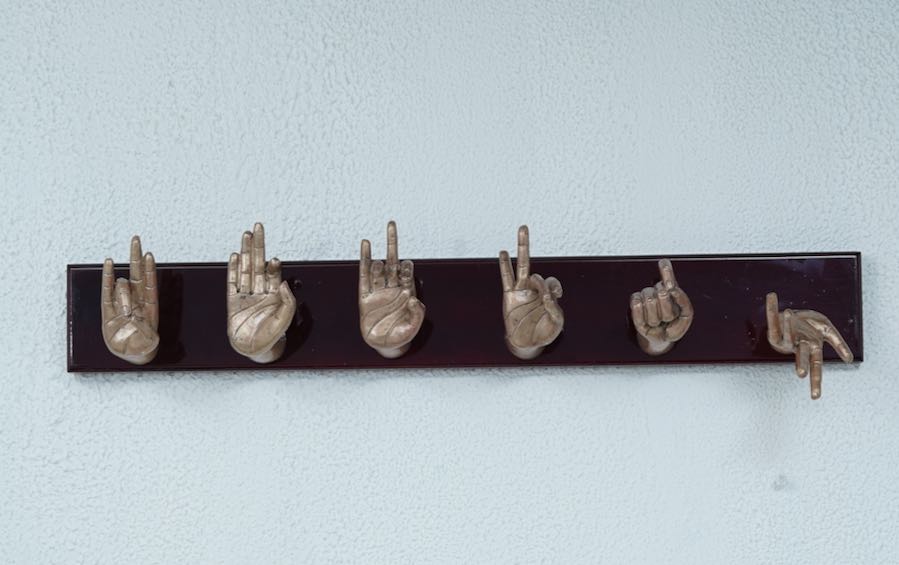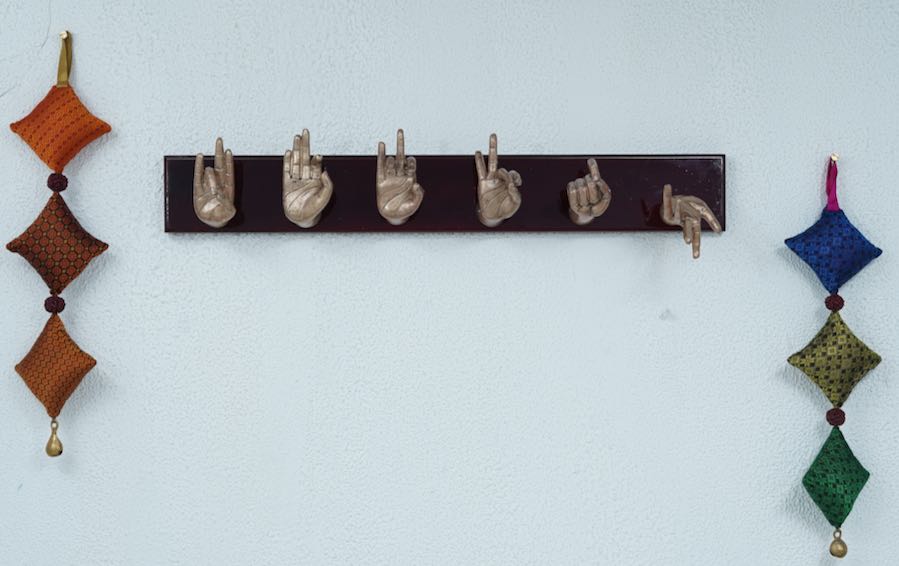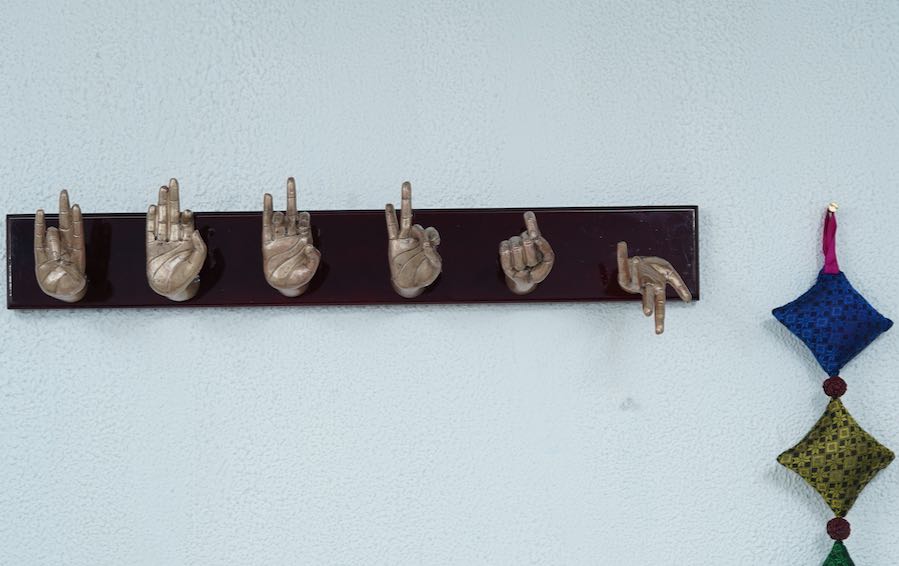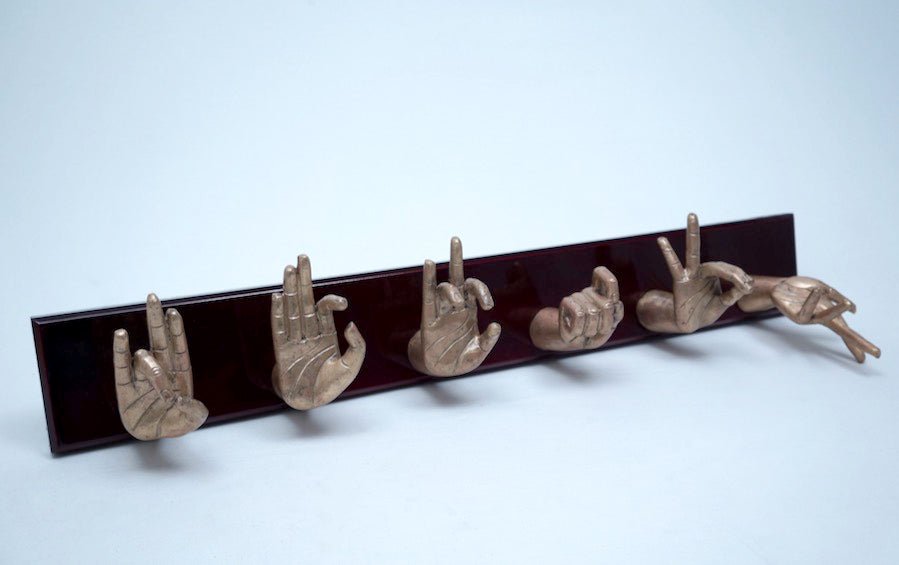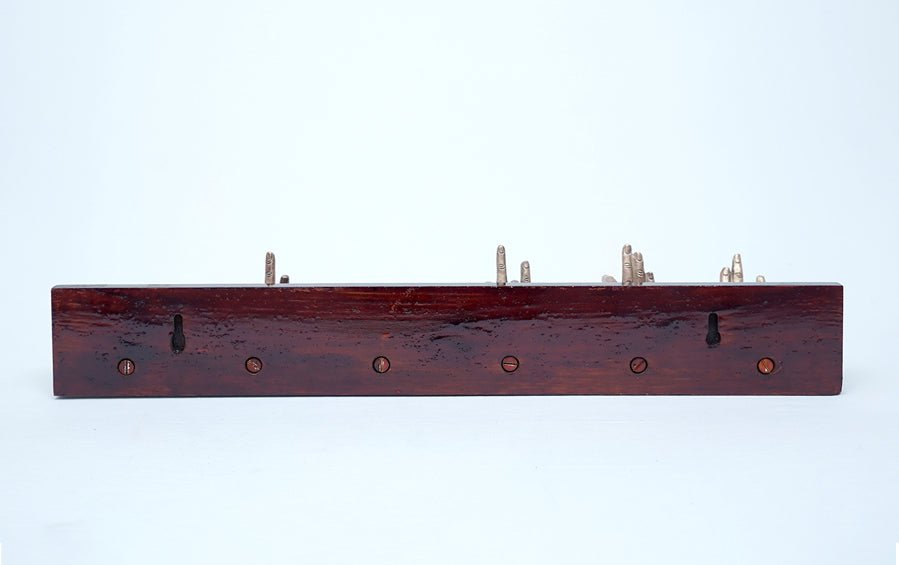Dance Hasta Mudra in Bronze | Set of 6
Desing Inspiration - 6 Hasta Mudras from Left to Right in the Picture -
Mayurakhyo Mudra (a peacock’s neck) - Mayura is the fifth mudra of the 28 Single Hand Mudras (Asamyutta Hasta) as described in the Abhinaya Darpana. It depicts a peacock’s neck, A Creeper, A Bird, Vomiting, Separating the hair locks, Applying Tilak on the forehead, Dispersing water of the river, Something Famous, Discussing the Shastras.
Arala Mudra ("Bent" or "Crooked")- The Arala Mudra is a simple yet meaningful hand gesture, achieved by a bend of the index finger towards the thumb. Arala is the seventh mudra of the 28 Single Hand Mudras (Asamyutta Hasta) as described in the Abhinaya Darpana.
Shukatunda Mudra (Parrot's beak) - Shukatunda is the seventh mudra of the 28 Single Hand Mudras (Asamyutta Hasta) as described in the Abhinaya Darpana. “Shukatunda” is used to denote the following: Shukatunda literally means a Parrot’s Beak, A shooting of an arrow, A spear, Remembering one’s Abode, Saying of Mystic things, A violent mood.
Kapittha Mudra (elephant apple/ Wood apple) - Kapittha Mudra is the eleventh hand gesture of the 28 single-hand mudras (Asamyutta Hastas) as described in the Abhinaya Darpana. It is used to denote the following:- Goddess Lakshmi and Saraswati, Milking Cows, Holding Cymbals, Holding Flowers at the time of making Love, Grasping the end of the robes, Offering Insense or Light, Collyrium (applying Kajal).
Kataka-Mukha Mudra (opening in a bracelet) - Kataka-mukha Mudra is the twelfth hand gesture of the 28 single-hand mudras (Asamyukta Hastas) as described in the Abhinaya Darpana. According to mythology this mudra originated from Guha when he practiced archery in front of Shiva. This mudra is used to show plucking flowers, holding or wearing a necklace and talking/seeing.
Alapadma Mudra (Lotus) is the twentieth hand gesture of the twenty-eight single-hand mudras (asamyukta hastas) as described in the Abhinaya Darpana. It is noted in the Natya Sastra as Ala-pallava. According to mythology, the mudra originates from Shri Krishna, referring to the time when he was a young child stealing butter and milk. Alapadma refers to “blossomed lotus, happiness”.
- Hand Mudra | Wall Décor Set of 6 is made of bronze.
- Each hand mudra is elegantly mounted on a solid wood base.
- Ready to hang.
- Ideal to be used as a decorative wall hook to add an ethnic taste to your home.
- Can be considered as a gift option for your loved ones.
- Comes in set of six wall décor.
- It's a unique piece of craft.
- Suitable for Home Décor, Dance School Décor, Office Décor and Gifting purposes.
- Care instructions: Wipe it with a soft, dry cloth.
About Craft- The Swamimalai bronze icons are made by the artists known as the ‘Sthapathis' of a small village on the banks of River Cauvery - SWAMIMALAI - located seven kms from the Temple Town of Kumbakonam. Swamimalai is famous for South Indian Bronze moorthy making, and the artisans here have been following a tradition that is several centuries old. The Highlight of the moorthy manufacture in Swamimalai is the usage of the ancient method called the Madhuchishtavidhana or lost-wax method (cire perdue) a skill passed on for generations since the Chola period. A science that finds reference in the Rig Veda & Silpa Sasthira, this age-old method spells precision, technique and aesthetics while adhering to the firmly laid down standards and principles.
